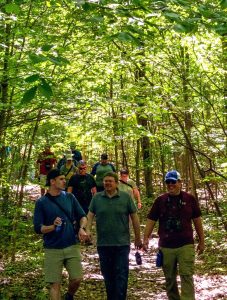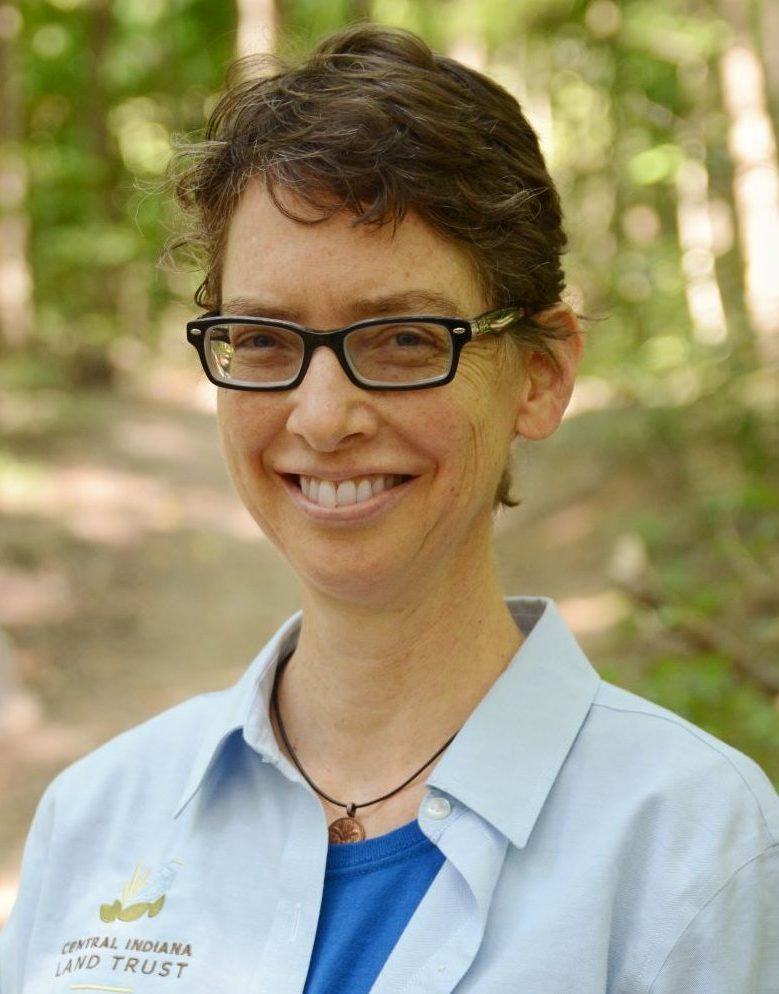First in a series memorializing our friend and benefactor, Len Betley
Our spring newsmagazine features a tribute to the late Len Betley, whose support of conservation in general and our work in particular had an enormous impact. Here, we talk with Len’s son Tom Betley. Tom is the Associate Vice Chair for Budget and Finance at the IU Department of Medicine. He serves on our board as Vice Chair of Programs, generously volunteering his time and expertise to our mission. He offered these reflections on his father’s legacy.
What did your father impart to you about what it means to be a good citizen/community member?
My father strongly believed that fulfilling one’s responsibilities was the most important thing a person to do and he wasn’t shy about telling his children that. He meant fulfilling one’s responsibilities broadly—to one’s family, employer, coworkers, employees, and to one’s community. “Obligation over fun,” he would say.

Admonishments that my brother and I should spend less time pursuing fun and more time attending to our duties aside, his most effective way of imparting this to us was by example. He worked hard, lived simply and had a set of strong moral and ethical values that he adhered to. Almost begrudgingly, it seeped into us—even if we allowed for a little more fun than he thought we should.
Our dinner table conversations were filled with talk of all the many foundations and charitable organizations that both my father and my mother were deeply involved in. From what I could see growing up, participating in and supporting community organizations was just what you did. It didn’t really occur to me that there was any other way.
How did he show his concern for nature, and how did he share that with you and the rest of the family or close friends?
My father had a lifelong passion for nature and for most of his life he was deeply involved in nature conservation. He was a deeply practical man. Science wasn’t his strong suit and he had little patience for solutions that didn’t take into account hard political and financial realities. Fortunately, taking into account political and financial realities was an area of strength for him and that is where he focused his energy in nature conservation.
It started in the early sixties when my father read an article about the Indiana Chapter of The Nature Conservancy and their efforts to protect Pine Hills, the Indiana Chapter’s first project. He decided to make a small donation to The Nature Conservancy to support the acquisition of Pine Hills. It would have been a small donation by necessity, but it led to him becoming a member of the board of the Indiana Chapter for a short time in the 1960s.
He rejoined the board in the 1980s eventually serving as its Chairman in the early 1990s. As part of his work with the conservancy, he helped draft and secure passage of the Indiana Heritage Trust Act (which provided funding for land acquisition for public use in Indiana) and was a recipient of the Oak Leaf Award.
He loved visiting nature preserves and enjoyed hiking, canoeing, and whitewater rafting (although he had a bad habit of falling out of the boat). Perhaps this is the root of what set him on this path of wanting to conserve nature.
As he got older he became more passionate about conservation as he was deeply concerned about climate change and the world that his children and especially his grandchildren would be inheriting.
What do you hope he would be remembered for? How do you see his legacy?
This is hard to answer—Dad had an amazing life. Starting from humble beginnings in Depression-era Fort Wayne, he became a highly successful attorney. He helped form and manage three of the largest charitable foundations in Indianapolis: The Richard M Fairbanks Foundation, the Regenstrief Foundation, and the Walther Cancer Foundation. He served on a number of boards, including The Nature Conservancy of Indiana, the Indianapolis Museum of Art, and BioCrossroads, among others. From these positions he had a great impact on Indiana and beyond in many ways.
He did not seek recognition or acclaim, but for many this is what he will be remembered for. For those that worked for him he was a generous and patient mentor. For his family, he was a good husband and father and a loving grandfather.
Personally, I see his legacy as the values that he instilled in his children and grandchildren. For example, when I was in my early twenties my parents started a small family foundation. It wasn’t large amounts of money, but my brother and I were to be the ones to decide what organizations the foundation would make its donations to.
I think the plan was that this was supposed to act as a sort of gateway for us. Through the process of researching who we should give our small gifts to, we would learn more about different organizations, discover what we were interested in and passionate about supporting, and would start to not just give from the foundation but also individually and start to get more broadly involved. Hopefully it would start a family tradition of giving.
Like many of Dad’s plans, it appears to be working. Now that my nieces are teenagers, they have joined us in deciding who the foundation should make gifts to, taking the same path that my brother and I did twenty years ago.
Read more about Len Betley’s legacy in our spring newsmagazine, available online here.
Up next: A tribute from a colleague in the business/philanthropy world

Shawndra Miller
Communications Manager